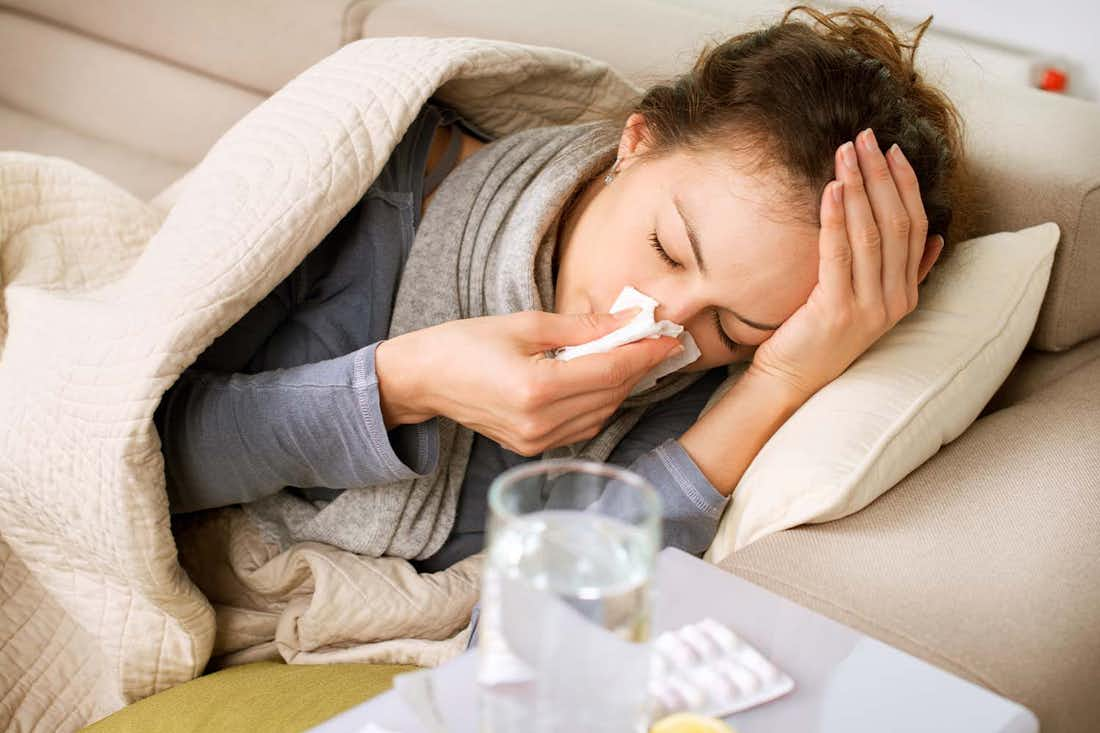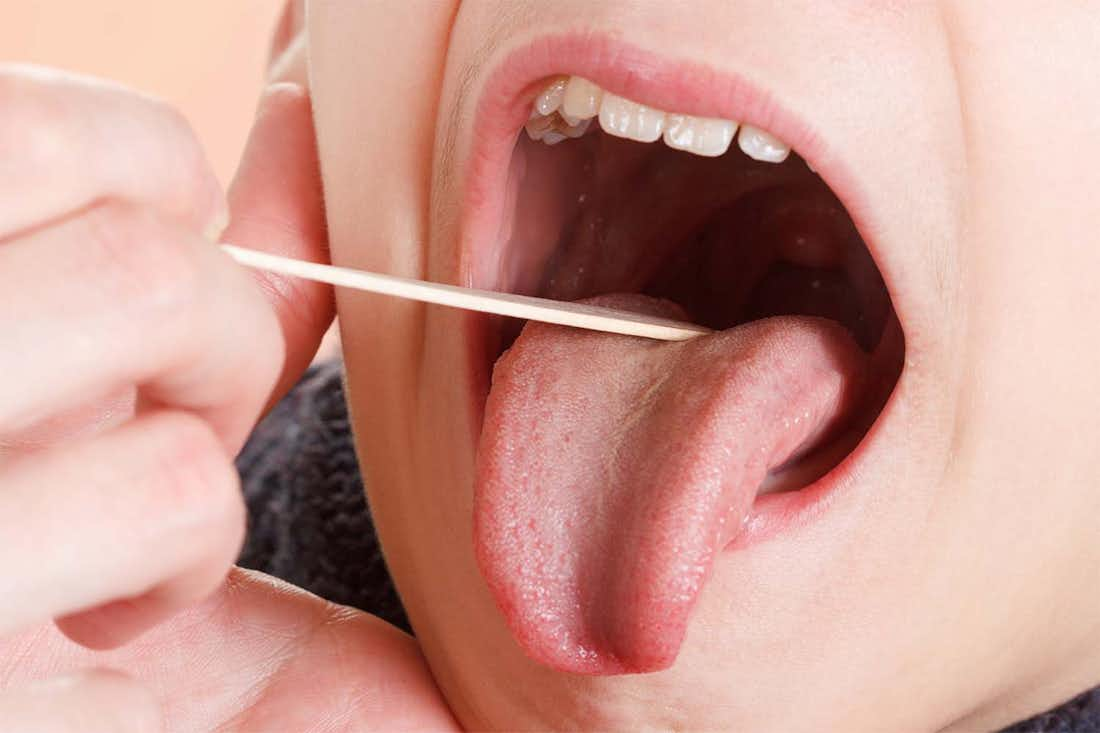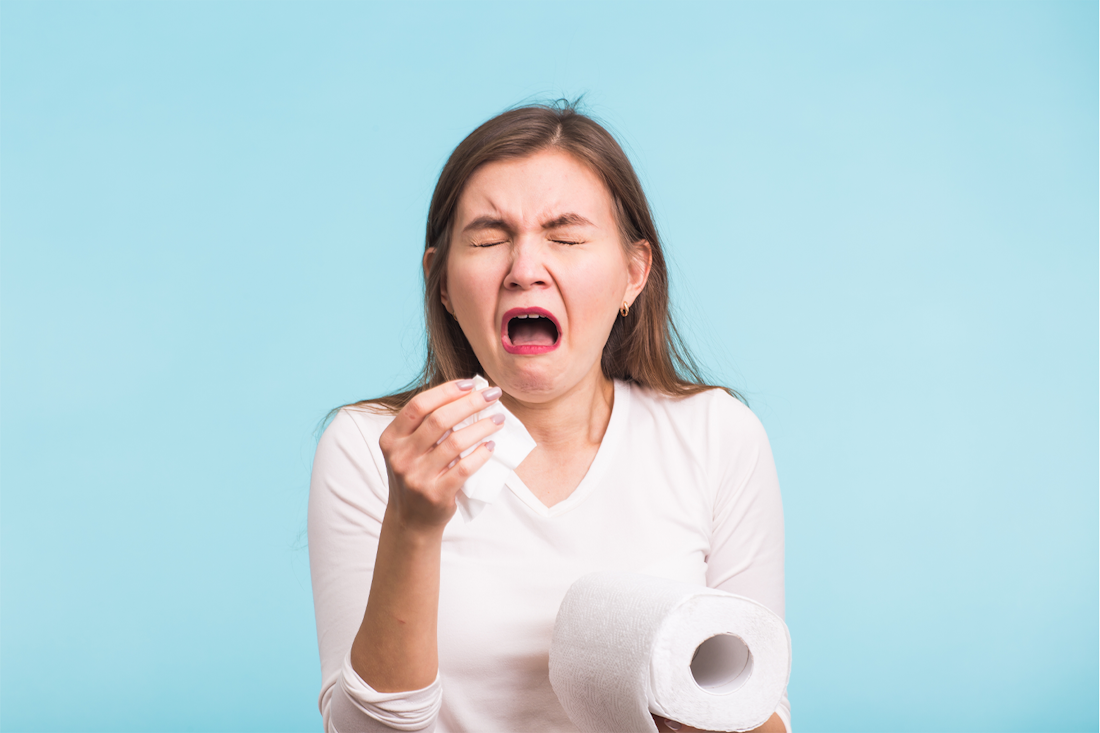May 27, 2022
Why Does My Throat Feel Dry?
6 minute read
When something doesn’t feel quite right in the back of your throat, you naturally want to get some relief as quickly as possible — and the best way to do that is by understanding the root cause.
A dry throat can be caused by many different things, from viral infections or bacterial infections to allergy symptoms or a dry cough. Even environmental factors like dry air or cold weather can lead to the feeling of a dry or uncomfortable throat.
The good news is that you can usually soothe this symptom with ease. Let’s take a look at some of the most common reasons your throat feels dry so that you can soothe it as soon as possible.
What Causes Throat Dryness?
Throat dryness can be caused by almost anything, but let’s take a look at some of the most common ones so you can find relief quickly.
Dehydration
One of the most common causes of dryness in the throat might dwindle down to the fact that you haven’t had enough to drink. Dehydration occurs when you lose more fluid than what you take in, meaning that your body doesn’t have enough fluid to carry out its normal functions.
Dehydration that causes a dry throat is typically minor, and you can fix it by just getting some water. However, if dehydration becomes severe enough, you can feel faint, get lightheaded, or even pass out.
If you’re dehydrated, you might notice some other co-occurring symptoms like increased thirst, dry mouth, dark urine, dizziness, or fatigue.
You can relieve dehydration by making sure to drink plenty of fluids throughout the day — especially water. Liquids with electrolytes can also help stimulate thirst and replenish key vitamins and nutrients that may have been depleted.
If you are dealing with dehydration, your doctor may advise you to avoid caffeinated or alcoholic beverages until your fluid levels are back to normal.
Sleeping With Mouth Open
Have you ever woken up in the morning and immediately felt like your throat was dry and tight? This is a common issue that happens when you sleep with your mouth open. The feeling of dryness in your throat and mouth happens because air dries out the saliva that usually keeps the mouth and throat moist.
This can also just happen if you breathe from your mouth in general. Co-occurring symptoms include bad breath, snoring, and daytime fatigue.
While it’s normal to wake up with a dry throat, mouth, and lips, it might be the result of excessive snoring from obstructive sleep apnea. Sleep apnea is a condition in which your breathing pauses periodically throughout the evening. If left untreated, sleep apnea can lead to problems like high blood pressure or heart problems.
Having nasal congestion or dealing with a cold can also make it more difficult to breathe through your nose while you sleep. If you’re able to kick your cold or allergies, you might also be able to kick that dry throat.
Allergies
Another one of the most common causes of throat dryness has to do with allergies. Seasonal allergies, also called hay fever, are caused by an immune system overreaction to harmless substances in the environment.
Your immune system is like a personal shield for your body to protect it from harmful foreign substances. However, it can be pretty frustrating when you get some gnarly symptoms from inhaling some harmless pollen or dust mites.
Allergens react with immunoglobulin E, or IgE, antibodies in your blood. These react with specific proteins found in allergy triggers like pollen and dust. The more IgE antibodies you have, the more severe the reaction. And these antibodies go on to release histamine, which is a chemical that causes most of the symptoms you’d associate with allergies.
These symptoms include coughing, sneezing, itchy eyes, and watery eyes. However, it can also lead to nasal congestion and a runny nose. This can force you to breathe out of your mouth, which can dry out your throat.
A runny nose from allergies can also lead to postnasal drip. Since mucus is salty, it can dry out your throat and make it feel sore.
The good news is that you can treat your allergies easily with a wide variety of treatments. One of the most common is antihistamines, which you can take orally to block the effects of histamines and reduce your symptoms. However, you can also use nasal spray antihistamines that go directly into your nose, reducing post-nasal drip and congestion so you can breathe easier.
You can even try allergy immunotherapy from Cleared to combat your symptoms before they even start. Immunotherapy works by building up your immune system’s defenses to make you more defensive against allergy triggers from the get-go.
Not to mention, you can make some lifestyle changes in your home to reduce the effect that allergies have on you. Stay indoors with windows closed, vacuum your carpets and dust floors to pick up dust mites, put dust-proof covers on furniture, and keep your pets out of your bedroom after they’ve been outside. These are all simple tricks that can go a long way.
Common Cold
The common cold is an infection that can be caused by many different viruses. A cold can cause loads of symptoms that tend to feel very similar to those of allergies. However, because of congestion and postnasal drip, you may also notice that it causes your throat to feel dry and scratchy.
Common colds need to go away on their own, so you just need to let your immune system do its thing. Be sure to drink lots of fluids, rest a lot, and patiently give your body the time it needs to recover.
You can take decongestants and drink warm fluids to help soothe a sore and dry throat throughout the recovery process.
Flu
The flu is similar to a cold, but it tends to be more severe. For the same reasons as a cold, it can lead to dryness and scratchiness in the throat. However, it often goes along with fever, chills, cough, muscle aches, and fatigue.
The flu can lead to serious complications, like weakened immune systems or pneumonia. Antiviral medications can reduce flu symptoms and shorten the amount of time that you’re sick. The only problem is that they need to be taken within 48 hours of symptom onset to be effective.
While you’re sick, you can get over your symptoms a little sooner by resting, gargling with salt water mixtures to soothe your throat, or taking over-the-counter pain relievers like Tylenol to ease the body aching.
Strep Throat
Strep throat is a throat infection caused by a bacteria called Streptococcus, and it causes inflammation in the throat that often leads to feelings of pain, tenderness, or dryness. It can make it painful to swallow, and you might also notice red or white patches on the tonsils.
Throat dryness is rarely the only symptom of strep throat, so the chances are high that you’d also have co-occurring symptoms. It’s also highly contagious, so be sure to keep yourself away from friends or family if you have it (and stay away from them if they’ve got it too)!
Antibiotics are a primary course of treatment for strep throat in order to kill off the bacteria that are causing it. If taken within 48 hours of illness onset, these can severely reduce the duration and severity of symptoms. Otherwise, you just need to let the body do its thing and run its course. Symptom relievers like lozenges, over-the-counter pain relievers, or gargling with salt water can all be majorly helpful.
Acid Reflux
Gastroesophageal reflux disease, lovingly referred to as GERD, causes acid to back up from the stomach into the esophagus. The esophagus is the pipe that carries food from the mouth to the stomach. Many people call this acid reflux.
The stomach acid burns the esophagus lining, which can feel uncomfortable and painful. However, it can also make it hard to swallow, make you belch up sour liquids, or contribute to throat dryness. It’s often caused by eating fried or spicy foods or eating too much food at one time.
One of the most effective ways to reverse acid reflux is to neutralize the acid that’s coming back up. You can do this with antacids, which are alkaline remedies that balance out the pH levels in your stomach acid. You can use other medications like H2 inhibitors to reduce the amount of stomach acid that your body is producing.
If you are dealing with acid reflux, consult your doctor for medical advice.
Mononucleosis
Mononucleosis, often just called “mono,” is a contagious infection that can lead to some pretty severe symptoms in teenagers and young adults. This includes extreme fatigue, fever, sore throat, swollen lymph nodes, and rash. And, of course, it might also make you feel like your throat is a little scratchy.
Similar to strep throat, a dry throat will very likely not be the only symptom you experience with this infection. Most people start to feel better in two to four weeks, but some people might continue to feel fatigued for weeks onward.
While there is no specific therapy to treat mono, as it is caused by a virus and does not respond to antibiotics, the only thing you can do is manage symptoms and stay well-rested. Drinking plenty of fluids that are high in electrolytes, as well as eating a healthy diet, can all help build up your immune system to let you feel better in no time.
Tonsillitis
Tonsillitis is a fancy, general term for inflammation of the tonsils. These are the oval-shaped pads in the back of the throat. Often, tonsillitis can worsen the symptoms of mono or strep throat, making your throat feel extra dry, scratchy, or painful.
Along with sore and dry throat, tonsillitis might also cause fever, red or white patches, bad breath, headache, or hoarse voice. Depending on the cause of tonsillitis, a doctor might be able to prescribe antibiotics or other types of medications to help.
However, some people choose to have their tonsils removed in a process called a tonsillectomy. This is recommended if you’ve had seven or more episodes of tonsillitis in a year. Tonsils are part of the body’s immune system and work to prevent germs from entering the body through the mouth. Though, they aren’t necessary for human functioning, so they can be removed if you are prone to sore and dry throats.
Should I Be Worried About a Dry Throat?
Having a dry, scratchy throat is certainly uncomfortable, but while it can turn a good day upside down, it’s usually not a cause for alarm. This common symptom is typically a sign of something minor, and it often goes away on its own.
However, looking at any other symptoms you may be experiencing can let you know if you should see a doctor. If your dry throat is accompanied by difficulty breathing, swallowing, or eating to an extent where you’re in immense discomfort, you’ll want to visit a medical professional.
In Conclusion
Having a scratchy and dry throat is not much more than a nuisance, and it can be frustrating because there are plenty of underlying causes. If your only symptom is throat dryness, the chances are high that it’s due to dehydration or mouth breathing while you sleep. If you’ve got some other minor symptoms like sneezing, it’s probably due to allergies.
However, if you also feel soreness and fatigue alongside your scratchy throat, it might be the flu, strep throat, mono, or tonsillitis. Whatever it is, you can typically find relief by using lozenges or taking over-the-counter pain medications while your body naturally recovers.
If your throat is staying dry no matter how hard you try, your online allergist is ready to help. Take your free allergy consultation through Cleared to get matched with a licensed allergist and take some major steps towards relief.
Sources:
Sleep Apnea: Causes, Symptoms, Tests & Treatments | Cleveland Clinic.
Strep throat - Diagnosis and treatment | The Mayo Clinic
About Mono (Infectious Mononucleosis) | CDC
Signs It's Time for a Tonsillectomy | Hackensack Meridian Health.



